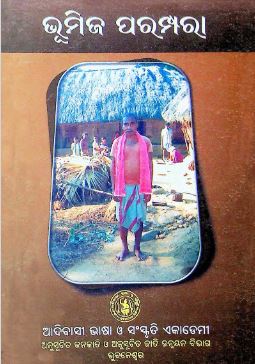In the vibrant tapestry of Indian literature, Odia literature has carved a niche for itself, reflecting the rich culture and traditions of Odisha. Among the gems that shine brightly in the realm of Odia essays is “Bhumij Parampara” by Lata Bhol, published in 2007. This work not only serves as an exploration of the Bhumij tribe’s traditions but also acts as a bridge connecting contemporary readers with the profound cultural heritage of the tribal communities in Odisha.
Lata Bhol, a seasoned writer and cultural enthusiast, intricately weaves her narrative to present a detailed account of the Bhumij tribe, known for their unique customs and practices in Odisha. “Bhumij Parampara” delves deep into the social structure, rituals, and everyday life of the Bhumij people, bringing to light aspects that are often overshadowed by the mainstream narratives of Indian culture. The author’s meticulous research and insights make it evident that she has a genuine passion for preserving and promoting the tribal heritage.
One of the standout features of “Bhumij Parampara” is its emphasis on the oral tradition of the Bhumij people. The book highlights how oral storytelling plays a crucial role in passing down values, customs, and historical narratives from one generation to another. These tales are not just entertainment; they are vital instruments for cultural preservation. Bhol captures the essence of these stories beautifully, ensuring that readers appreciate the depth and richness of the Bhumij’s oral literature.
Tradition is a central theme of the book, and Bhol does not shy away from discussing the challenges faced by the Bhumij tribe in a rapidly changing world. As modernization and globalization impact tribal communities, their traditions risk fading into oblivion. The book advocates for the importance of preserving these customs, emphasizing that they are not relics of the past but live practices that shape the identity of the Bhumij people today. Bhol’s approach is respectful and empathetic, encouraging readers to appreciate the significance of these traditions.
Culture is another critical element explored in “Bhumij Parampara.” The book provides readers with an understanding of the intricacies of Bhumij cultural practices, including their music, dance, festivals, and agricultural practices. These cultural elements reflect a symbiotic relationship with nature and underscore the tribe’s deep-rooted beliefs. Bhol skillfully captures this connection, allowing readers to visualize the vibrant life of the Bhumij community and its harmonious coexistence with the environment.
Furthermore, “Bhumij Parampara” challenges the stereotypes commonly associated with tribal communities. Through her narratives, Bhol dismantles simplistic views and presents the Bhumij as a resilient community with a rich cultural identity. She portrays their struggles and triumphs, allowing readers to see the Bhumij not merely as subjects of anthropological interest but as dynamic individuals contributing to India’s diverse cultural landscape.
In conclusion, Lata Bhol’s “Bhumij Parampara” is a poignant exploration of the traditions and culture of the Bhumij tribe. It serves as a reminder of the importance of preserving and celebrating our diverse cultural heritage in the face of modern challenges. This book is not just for those interested in tribal studies; it is a significant contribution to Odisha’s literary canon and a heartfelt call to recognize the value of indigenous cultures in contemporary society. Readers will find themselves enriched, challenged, and inspired by the stories and insights within these pages, making “Bhumij Parampara” a must-read for anyone interested in understanding the depth of India’s cultural diversity.
Books Info
| Books name | Bhumij Parampara/ଭୂମିଜ ପରମ୍ପରା |
| Editor | Lata Bhol, C. |
| No Of pages | 229 |
| Publisher | Adibhasi Bhasa Sanskruti Academy |
| Publication | 2007 |
| Printed At | Bholanath Press |
| Distributor | NA |

